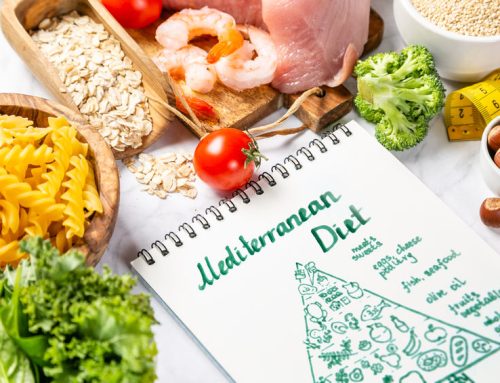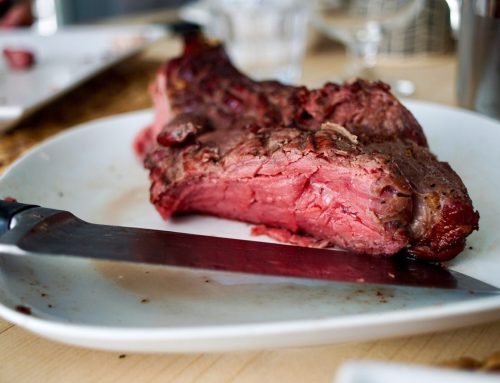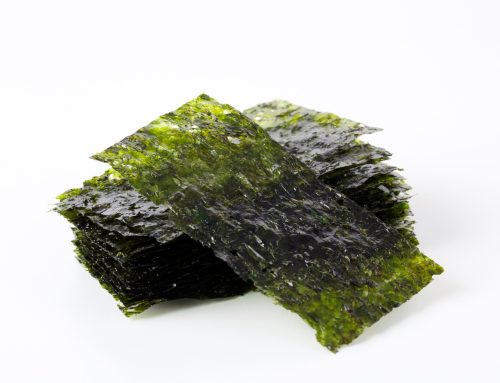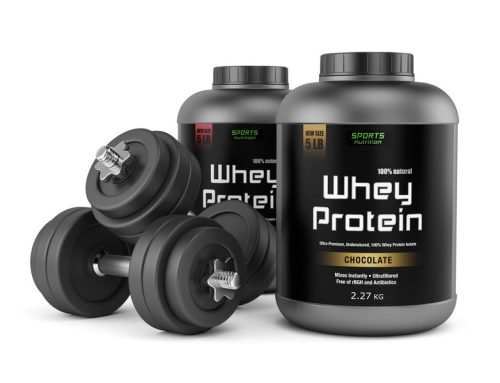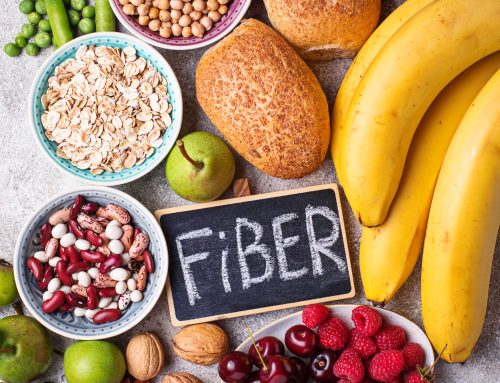Bloating and constipation feel very uncomfortable. If fact, these issues can make you feel poorly all day.
On average, it takes anywhere from 10 hours to three days for food to move through your entire digestive system. But if you’re feeling a little sluggish or dealing with GI issues, it’s possible things have slowed down.
Bloating, an unsettled stomach, and feeling disproportionately full after eating small meals are some of the major signs that your gut could use some extra TLC.
How to Prevent Bloating and Constipation
So, how can you prevent bloating and constipation? Here’s what the experts advise.
1. Move your body.
Exercise is one of the best ways to get things moving. In an older, yet still relevant, study published in Gut, researchers reported that daily moderate exercise (in this case, cycling and jogging) may reduce gut transit time by as much as 30%.
But you don’t have to stick to these two modalities if they aren’t your thing. Here are some other types of exercise you can try:
• Go for a walk.
Basic movement, like walking, speeds up digestion by stimulating the muscles in your stomach and small intestine, helping move things along. Walking any time of the day is great, but a post-prandial stroll may be especially beneficial.
Research suggests that taking a 15-minute, leisurely walk right after eating can help move food through your stomach more quickly. The keyword here is leisurely, though. Going too hard can have the opposite effect.
• Try a yoga flow.
There are many yoga poses can help speed up your digestion. Committing to a simple 10-minute sequence each day can physically support digestive processes and encourage elimination. “Yoga is…a key factor in improving digestion, as twisting postures can help to enhance your digestion and encourage your liver and kidneys’ detoxification processes,” Lee Holmes, registered yoga teacher, gut expert, and author of Heal Your Gut, previously told mbg. “Yoga can also help with bloating, increasing the amount of oxygen to the area.”
Yoga can also indirectly speed up digestion by promoting relaxation. When you’re relaxed, your nervous system is in a parasympathetic state. This calming state, aptly nicknamed “rest and digest,” is critical for proper digestion.
2. Eat something to help.
Some foods, like refined carbohydrates (we’re looking at you, sugar) and anything fried, impede digestion, while others keep things moving as they should. Take a look at your plate and make sure these things are on it:
• Probiotic foods
Probiotic-rich foods, or fermented foods, are teeming with good bacteria that support your gut health. Research in Applied and Environmental Microbiology suggests that yogurt—one of the go-to probiotic foods—can speed up digestion, while also supporting the part of the immune system that lives in your gut known as the GALT.
If you don’t do dairy, or you just like options, you can, and should, also try kimchi, natto, kefir, pickled vegetables, miso, tempeh, and sauerkraut (FYI: Just 2 tablespoons of raw sauerkraut contain about 1 million units of of good bacteria).
• Fiber-rich foods
Fiber is another nonnegotiable for digestion. There are two main types—soluble and insoluble—and while you should get both for overall health, insoluble fiber is the star of the show when it comes to transit time.
“Insoluble fiber is not digested by the body or absorbed into the bloodstream,” Amy Shapiro, M.S., R.D., CDN, and founder of Real Nutrition previously told mbg. “Instead, it forms the weight and bulk of stools in the body, acting as a broom.” In other words, insoluble has more of a laxative effect, pulling water into the stool and pushing things out.
3. Get plenty of fluids
Failing to take in optimal amounts of hydration can affect digestion, so it’s impossible to keep things moving without drinking plenty of fluids. But that doesn’t mean an extra cup of coffee or a sugary lemonade. Stick to these beneficial liquids:
• Water
Water is the most essential nutrient you put into your body. It helps you digest your food and absorb nutrients, and then push the waste through your digestive system. Drinking enough water is a surefire way to support digestion, so make sure you’re getting what you need daily (9 cups for women and 12.5 cups for men is a good place to start).
• Herbal tea
Herbal teas can help nourish your gut, but certain varieties have benefits beyond that. Dandelion tea, for example, has been shown to stimulate muscle contractions and help push food through the digestive system, while fennel and senna teas have a stronger laxative-type effect.
• Bone broth
Bone broth is a double whammy for digestion. Not only does it keep your gut hydrated, but it also contains gelatin and gut-supporting minerals, electrolytes, and bioactives, like calcium, magnesium, phosphorus, chondroitin sulfate, and glucosamine.
Click here to read more about how to prevent bloating and constipation.



